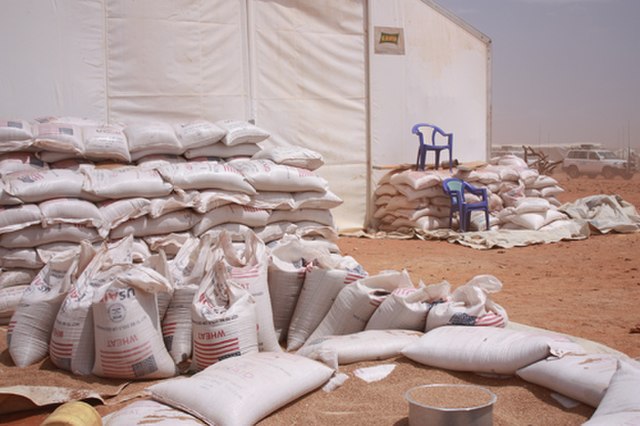Why is food aid to Ethiopia being suspended?

Bags of wheat provided by USAID for refugees in Ethiopia.
Carilyn Pointer -The United States has suspended sending food aid to Ethiopia upon uncovering the theft of the rations on a countrywide scale. Twelve million people are fed by the United States contributions, and with the cessation of aid, the citizens of Ethiopia that are vulnerable due to climate change, civil conflicts, and locust infestation are bound to feel the impacts. By understanding how the network of aid functions it becomes apparent how it transcends boundaries and what it might take to resume as before.
Networks are collections of nodes that are linked together. Each node can perform a different task, but they all contribute to the overall function of the network. In this case, the USAID (U.S. Agency for International Development) is an independent agency of the U.S. government and has a headquarters, multiple branches, and production sites. Each of these nodes have a different function, but all contribute to the shared goal of administering foreign aid to civilians. Since it is independent of the federal government, it is easier for the network of the USAID to interact without regards to boundaries or regions. Theft is a major problem facing food distribution in Ethiopia. While not explicitly stated, the theft of food aid does appear to be “orchestrated by Federal and regional government of Ethiopia entities.” The node of the network that works in conjunction with the Ethiopian government appears to be compromised, which has effectively crippled the network’s ability to reliably deliver humanitarian aid to those in need. Until that node can be secured and is reliable, the network will not function in Ethiopia. This will require work within the local government and may be hard to do with the current political situation.
The function of this network is to provide aid and stability and because of this is welcomed by Ethiopia. However, some networks such as drug or weapon smuggling networks can be threats to a country’s security. Since networks don’t need a specific territory to operate, they can exist in opposition to the government and create a conflict within a country that is hard to manage.
Picture Credit:USAID Africa Bureau, Public Domain

